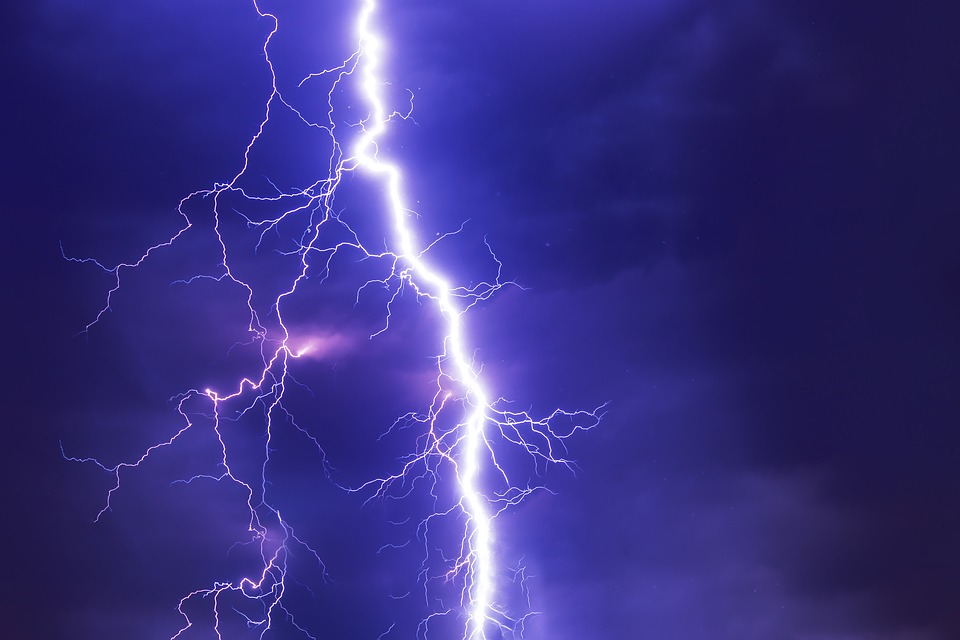Germany doesn’t have bad weather. It has un-weather. Posted by Constanze on Oct 5, 2014 in Language
Guten Tag, meine Lieben!
Since die Jahreszeiten are changing and Herbst und Winter are upon us here in the UK, I thought this was the right time to learn some Wetter vocabulary – and yes, the Germans even have an untranslatable word or two when it comes to describing the weather.

The first untranslatable word is Das Unwetter.
What does Unwetter mean?
Unwetter is a storm, but it’s not just any storm. It is used to describe extremely bad weather, or weather that is unusual for the region/time of year. For instance, if Germany were to have snow in summer, Germans would call that Unwetter.
What does Unwetter literally translate to?
The literal translation is ‘un-weather’ – meaning weather that is not weather. I think what the Germans are getting at is that sometimes you get such bad weather that you don’t even want to call it weather anymore. It could also mean that the weather is out of place – there should be different weather, instead.
How would you use it in a sentence?
Usually it is used as an exclamation of disbelief. “Was ist den dieses Unwetter!” – “What is this un-weather!” It’s not even said as a question.
What is the nearest English equivalent?
‘Unwetter’ is quite a dramatic word for describing the weather, so the English equivalent I’d give it is ‘tempest’, as that is quite dramatic, too. But there is no word exactly like it in the English language!
Here is a little more storm-related vocabulary:
Das Wetter – weather
Das Gewitter – stormy weather
Das Donner und Blitzen – thunder and lightning
Der Sturm – storm (usually referring to gale force winds)
Der Platzregen – downpour/cloudburst – literally ‘burst rain’
There is one more word I’d like to tell you about: Donnerwetter.
Since Donner means ‘thunder’ and Wetter means ‘weather’ (as you can see from the vocab list above), you would assume that Donnerwetter means ‘thunder weather’. This is correct, but this word is not usually used to describe weather itself.
Donnerwetter is an expression similar to the English “Bloody hell!”, “Oh my God!”, “Damn it!” and so on. If you said, “Es wird ein schönes Donnerwetter geben” (“There’ll be some nice thunder-weather“), you’d be saying something like “There’s trouble ahead” or “All hell will break loose”.
You could also just say, “Donnerwetter!” on its own as an exclamation of shock, anger, or surprise.
The translations of Donnerwetter that link it to hell (‘bloody’, ‘damn it’, ‘hell will break loose’ etc.) probably come from the fact that hell (Die Hölle, by the way) is pictured as having stormy and otherwise unpleasant weather.
So when the rain starts to hit (which will be this week where I live, apparently), instead of being politely British and informing the person next to you on the bus that, “Gosh, the weather is terrible, isn’t it?”, go out into the street and scream the phrase, “DONNERWETTER! WAS IST DIESES UNWETTER!?!”
Tschüß!

Build vocabulary, practice pronunciation, and more with Transparent Language Online. Available anytime, anywhere, on any device.
About the Author: Constanze
Servus! I'm Constanze and I live in the UK. I'm half English and half German, and have been writing about German language and culture on this blog since 2014. I am also a fitness instructor & personal trainer.




Comments:
Guest:
You are very helpful. You close your letter with Tschuss. Was es dass?
Constanze:
@Guest It is a friendly way of saying goobye. Auf Wiedersehen = Goodbye. Tschuess = Bye. 🙂
Anna Kron:
Hi,
I’m sry to feel that it seems like you might be mistaken about the literal translation of “Platzregen”. It refers to the verb “platzen” in standard German, which means “bursting” instead of the spot where the rain hits the ground.
Constanze:
@Anna Kron Thanks for the correction, Anna! 🙂